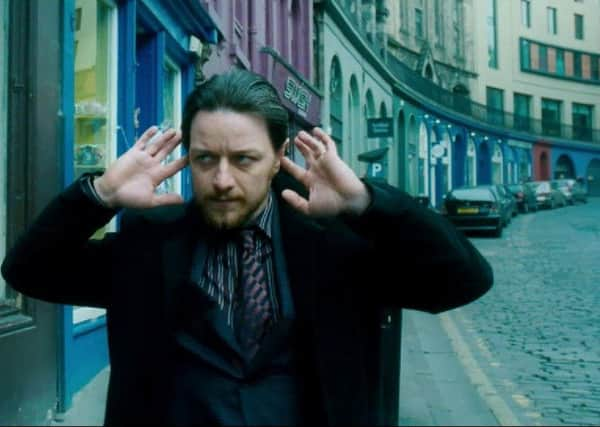Seven gritty Scottish indie films of the 21st century


It’s not always sunshine on Leith – something that ‘90s trailblazers Shallow Grave and Trainspotting depicted to widespread critical acclaim. Those films helped establish a loosely-correlated genre of films that portray Scotland’s dark side, with themes of gang violence, surveillance, corruption and body horror, among others.
Ken Loach’s longstanding love affair with Scotland has produced a plethora of great films in the past three decades, and Sweet Sixteen is the heartbreaking standout. It’s a relentlessly gritty and morose tale of a young teenage boy from Greenock who, with good intentions, falls into a bad crowd.
Advertisement
Hide AdAdvertisement
Hide AdThe film went to receive huge critical plaudits and picked up the best film prize at the BIFA awards – but Loach was frustrated at the BBFC for giving Sweet Sixteen an 18 certificate (the film averages 2.8 uses of the f-word every minute), arguing that the film would pass by its intended audience.
A Scottish check-out girl awakes to find her boyfriend dead days before Christmas, with instructions on how to access a manuscript of his unpublished novel. She then changes the name on the text and submits it as her own, without telling anyone of his suicide.
It takes a plethora of top talent to turn the premise of this Alan Warner novel into a life-affirming tale of redemption and Morvern Callar is just that. Director Lyn Ramsey (We Need to Talk About Kevin) guides the audience through this story without ever telling them how to feel, and actress Samantha Morton gives an incredible performance as the titular character, which saw her pick up the British Independent Film Award for Best Actress.
Part of Lars Von Trier’s Advance Party film series and winner of the Cannes Jury Prize in 2006, Red Road ia a gripping drama set in the heart of the now-demolished Red Road flats.
CCTV operator Jackie watches over her small section of the world from her security monitors, when one day someone appears on those screens who she hoped she would never see again. It’s a suspenseful tale, cleverly dealing with the morality of surveillance. Almost ten years on, it’s more timely than ever.
As a coming-of-age story, Hallam Foe is far removed from the gang culture of Sweet Sixteen, but it’s similarly riven with moral conflicts. Jamie Bell plays the eponymous Hallam Foe, a teenager from the Borders, who finds himself descending into oddity and voyeurism following the suspicious death of his mother. He then runs away to Edinburgh before falling for a girl because of her resemblance to his deceased parent.
The story is brought together by great direction and a stellar soundtrack - including Franz Ferdinand and King Creosote – as well as the unmistakable artwork of David Shrigley.
Put up as Scotland’s answer to the likes of La Haine and Kidulthood, Neds is the witty and profane story of the violent young street gangs of 1970s Glasgow.
Advertisement
Hide AdAdvertisement
Hide AdDirector Peter Mullan is the film’s most recognisable face, but young lead Conor McCarron gives a rousing performance as a bright young boy scorned by society.
Despite being a story very much rooted in the Dear Green Place and with a fierce commitment to Glaswegian dialect, Neds went on to pick up the Golden Shell at the San Sebastian Film Festival.
A big screen adaptation of an Irvine Welsh novel featuring a top Scottish lead breaking apart under stress and hallucination - who knew that could work?
Unavoidable Trainspotting comparisons aside, director Jon S Baird steps into the sleazy underside of Edinburgh and the racist/homophobic/misogynist/sectarian shoes of Detective Seargant Bruce Robertson with aplomb.
The cartoonish glare of Bruce Robertson’s world only heightens the tragedy of his alcohol and drug abuse. As always, laughter and misery are not uncommon bedfellows in this Scottish indie flick, with James McAvoy turning in a career best performance as he walks the tightrope between the two.
Truly original works can often split audiences right down the middle and Jonathan Glazer’s surreal body horror does exactly that. Scarlett Johansson plays an alien cruising the streets of Glasgow in search of men to seduce and prey on. A visually stunning and truly disturbing science fiction tale brought down to Earth via Sauchiehall Street.